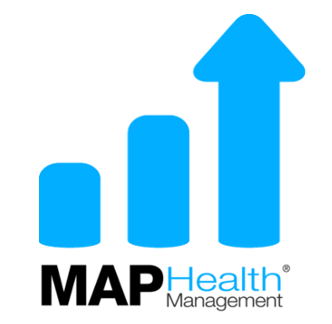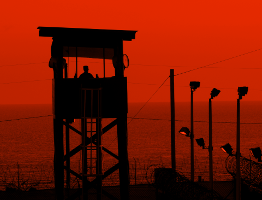MAP Health Management Calls for Addiction Action Plans From All Candidates Needs Your Support
October 16, 2015 Jacob Levenson
125,000 Americans Die of Addiction Every Year Why Was This Issue Not Covered During the Democratic Debate?

Approximately 125,000 Americans die each year due to the effects of the disease of addiction, but during the democratic presidential debate this week, none of the candidates took the time to discuss this issue. To put this massive number in context, 125,000 dead Americans is more than twice the number of Americans who were killed in the war in Vietnam. America's experience in Vietnam shaped our foreign policy for more than a generation, yet the national crisis affecting more than 85 percent of us addiction wasn't important enough to warrant a mention during the debate.
If you're not outraged by the number of Americans who die each year from addiction, then consider the financial impact. Our nation spends $650 billion dollars annually due to the social, medical and economic impacts of the disease. As a point of reference, the total direct cost of the Vietnam War to America was $173 billion dollars. The war in Vietnam changed the face of our country. Our music, social constructs, military and foreign policy were altered and transformed. We need to put the same attention toward addiction.
Last week nearly 100,000 Americans from across the nation united at the National Mall in Washington, DC, at the UNITE to Face Addiction event and spoke out about their frustrations with our failure to effectively combat addiction. Our fellow citizens our loved ones die from the disease of addiction at increasingly alarming rates, and our national budget is hemorrhaging more money than ever. We can do more we have to do more and we need immediate action! Our citizens deserve a fighting chance against the ravages of this chronic disease just as we provide chances to fight other chronic diseases. It is time to address the ineffective drug war as a means of dealing with this national calamity.
A significant portion of the prison population is incarcerated for simple possession charges which complicates and constrains any chance they have from recovering from this disease. A rap sheet destroys opportunities for employment and limits access to necessary resources. Data from research conducted in the field of addiction shows employment as a major factor in success for people recovering from addiction. According to the American Society of Addiction Medicine (ASAM), addiction is a stress-induced chronic brain disease. Why would we expect any effective recovery solution to be stress-inducing? Our prison and judicial systems are not designed to treat brain diseases and are doing more harm than good by inducing additional stress on those who are sick with a chronic illness. Simple drug possession offenders need treatment, not prison. If prison effectively treated addiction, I would be a strong proponent. I understand for some, incarceration is necessary, however it is important we remember that revenge or retribution is not generally the most effective choice. Incarceration often exacerbates a complicated situation that results in the detriment of society rather than restoring someone to a healthy and productive lifestyle.
Addiction treatment is greatly encumbered by a lack of standardized treatment protocol driven by empirical data that illuminate successful treatment pathways. How can we treat that which we do not understand? We need emergency action to modernize outdated statutes that deny treatment and access to telehealth services to millions of Americans. We need to be able to better assess people suffering from addiction and get them to the addiction treatment provider best-suited for their particular disease state. Effective and longer-term treatment is imperative for success in this fight, and we need to better equip our providers as we have for oncologists and other healthcare specialists. The Mental Health Parity Act requires insurance companies to cover addiction treatment as they would any other chronic disease. Our nation deserves an immediate and honest enforcement of this Act to help put a stop to the alarming number of deaths annually from this disease.
CALL TO ACTION: We call for a national mobilization led by our political leaders, our finest medical minds, technology visionaries and health insurance thought leaders to collaborate and effectively confront the disease of addiction. We demand each presidential candidate release a comprehensive plan outlining how they will make this mobilization a reality as president. Help us fight the battle!
– Jacob Levenson, CEO MAP Health Management

In 2015, the company launched the MAP Recovery NetworkTM, the first-ever, standardized, outcomes-driven alliance comprised of addiction treatment providers who are dedicated to the delivery of quality addiction treatment. By utilizing quality measures to track and apply outcomes data Recovery Network members demonstrate clinical efficacy. This gives potential patients the ability to make informed decisions and health insurance providers the ability to identify effective treatment programs. The MAP Recovery Network extends the value of treatment by adding 12 months of Peer Recovery Support Services delivered by certified recovery advocates. More than 50 treatment facilities located throughout Arizona, California, Florida, New Hampshire, Oklahoma and Texas have joined the Network in its first year of operation.
Jacob is a contributing author to Psych Central, the Internet's largest and oldest independent mental health social network. Additionally, Jacob and MAP have been covered by The Hill, Population Health News, Texas Public Health Journal, Counselor, Addiction Professional, Becker's Hospital Review, Healthcare Finance News, Austin Business Journal and KJCE-AM and KLBJ-AM in Austin.

Jacob Levenson founded Austin-based MAP Health Management,LLC in 2011 and has served as Chief Executive Officer since its inception. Levenson passionately architects and deploys data-based solutions and healthcare services that empower patients by mitigating potential relapse, increasing predictability for insurance payers and overall outcomes for treatment providers.








